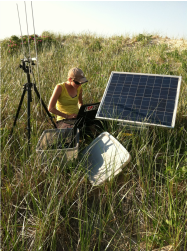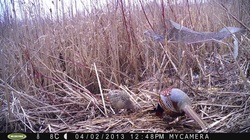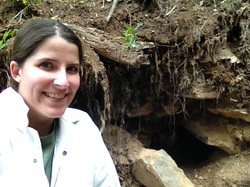
She says of the system, "It helps us detect movements of piping plovers during times of poor weather and low-light conditions (times when birds are more susceptible to collisions with turbines). We leave it out on the beach and let it 'listen' to a bird with a telemetry unit for a few nights in a row, then we switch to another individual."
Michelle's research will examine the implications of wind turbines piping plovers, specifically examining the potential for collision mortality if turbines are built in or near their habitat.


 RSS Feed
RSS Feed
